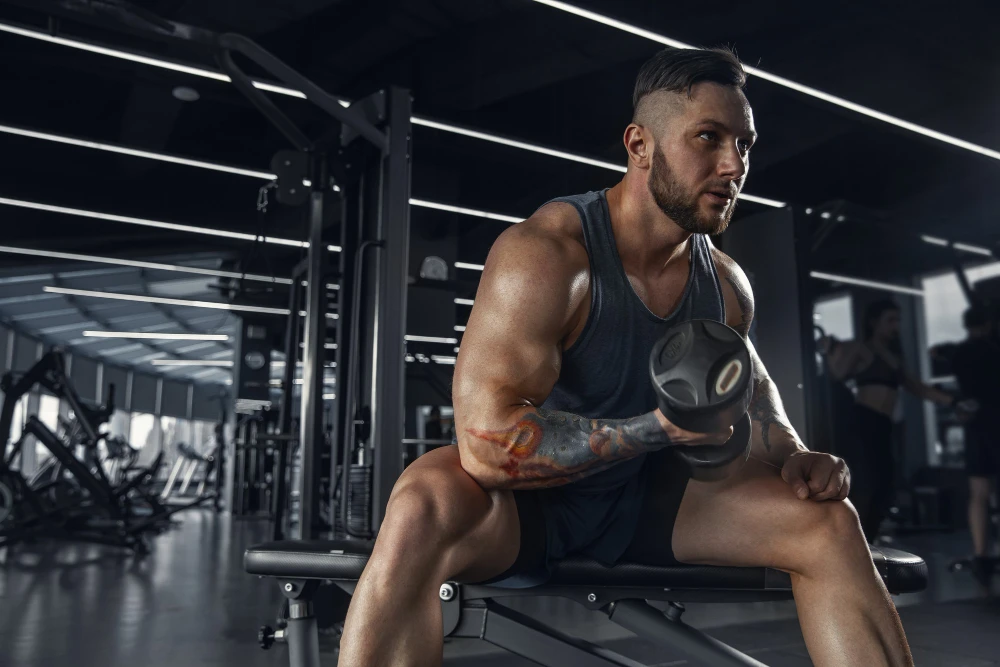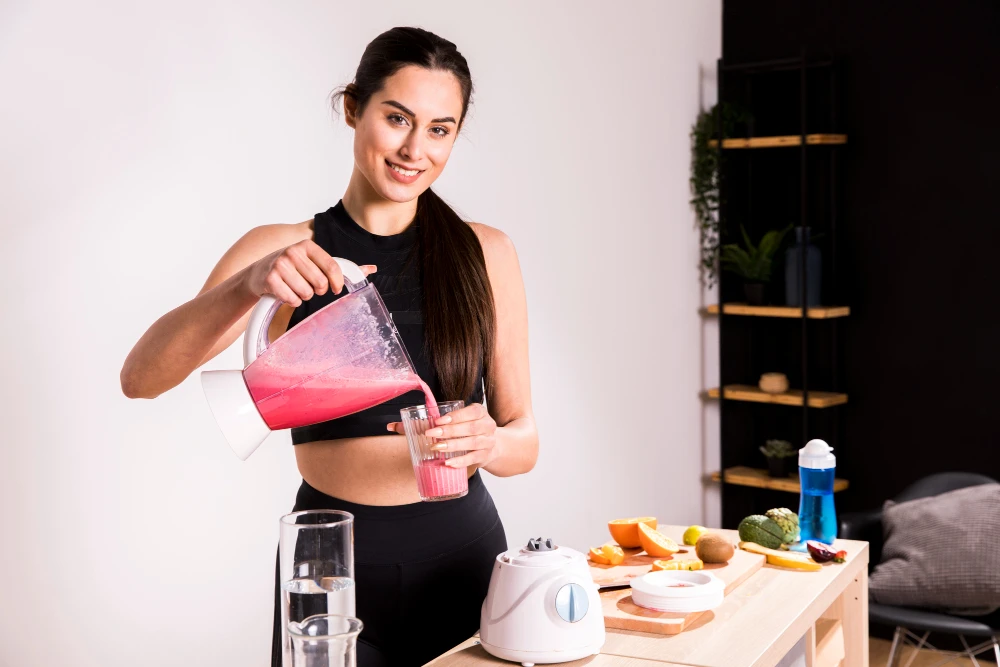Are you looking to maximize the benefits of your post-workout meal? It’s not just about refueling your body, but also about optimizing your nutrition to support muscle recovery and growth. In this article, we’ll delve into the world of post-workout meal plans, focusing on the importance of balancing macronutrients and timing.
Whether you’re a seasoned athlete or a fitness enthusiast, understanding how to fuel your body effectively after a workout is crucial for reaching your fitness goals. We’ll explore the role of carbohydrates, proteins, and fats in your post-workout meal, and provide you with practical tips on how to strike the perfect macronutrient balance. Furthermore, we’ll discuss the optimal timing for your post-workout meal to ensure that you’re getting the most out of your training sessions.
So, if you’re ready to take your post-workout nutrition to the next level, let’s dive in and discover the secrets to a well-rounded and effective meal plan.
Importance of Post-Workout Nutrition
After an intense workout, your body is in a state of depletion. It’s important to replenish your energy stores and provide your muscles with the nutrients they need to recover and grow. This is where post-workout nutrition comes into play. By consuming the right combination of macronutrients, you can maximize your muscle protein synthesis, enhance glycogen replenishment, and reduce muscle soreness.

Understanding Macronutrients
Macronutrients, namely carbohydrates, proteins, and fats, are the three main components of your diet. Each macronutrient plays a unique role in your post-workout nutrition and contributes to your overall performance and recovery.
- The Role of Protein in Post-Workout Nutrition
Protein is often referred to as the building block of muscles, and for good reason. It contains essential amino acids that are necessary for muscle repair and growth. Consuming an adequate amount of protein after your workout can stimulate muscle protein synthesis, leading to increased muscle mass and strength.
To maximize the benefits of protein in your post-workout meal, aim for a serving size of 20-30 grams. This can be obtained from sources such as lean meats, poultry, fish, eggs, dairy products, and plant-based options like tofu and legumes. Including a variety of protein sources can ensure that you’re getting a complete range of amino acids.
- The Importance of Carbohydrates in Post-Workout Nutrition
Carbohydrates are your body’s primary source of energy. When you exercise, your glycogen stores, which are the stored form of carbohydrates in your muscles, get depleted. Consuming carbohydrates after your workout helps replenish these stores and provides your body with the energy it needs for recovery and repair.
Incorporate complex carbohydrates into your post-workout meal, such as whole grains, fruits, and vegetables. These sources provide a steady release of glucose into your bloodstream, ensuring a sustained source of energy. Aim for a serving size of 30-40 grams of carbohydrates to optimize glycogen replenishment.
Incorporating Healthy Fats in Your Post Workout Meal Plan
While carbohydrates and proteins take the spotlight in post-workout nutrition, healthy fats also play a crucial role in supporting overall health and recovery. Including a moderate amount of healthy fats in your post-workout meal can provide satiety, aid in nutrient absorption, and provide essential fatty acids that support various bodily functions.
Opt for sources of unsaturated fats such as avocados, nuts, seeds, and olive oil. These fats are heart-healthy and can help reduce inflammation in the body. However, it’s important to consume fats in moderation, as they are more calorie-dense compared to proteins and carbohydrates.
- Timing Your Post-Workout Meal for Optimal Results
The timing of your post-workout meal is just as important as the macronutrient composition. Consuming the right nutrients at the right time can enhance your recovery and promote muscle growth. Ideally, you should aim to consume your post-workout meal within 1-2 hours after your workout, when your body is most receptive to nutrient uptake.
During this window of opportunity, your muscles are primed to absorb nutrients and utilize them for repair and growth. To ensure that you’re maximizing this window, plan your workouts and meals accordingly. If you’re unable to have a full meal immediately after your workout, consider having a protein shake or a small snack to kickstart the recovery process.

Sample Post Workout Meal Plan Ideas
Now that you have a better understanding of the importance of balancing macronutrients and timing your post-workout meal, let’s explore some sample meal plan ideas to help you get started. These suggestions can be tailored to your dietary preferences and goals:
- Grilled chicken breast with quinoa and roasted vegetables
- Salmon with sweet potato and steamed broccoli
- Greek yogurt with berries and a handful of almonds
- Tofu stir-fry with brown rice and mixed vegetables
- Omelette with spinach, mushrooms, and whole grain toast
Remember to adjust portion sizes based on your calorie needs and goals. Experiment with different combinations and flavors to keep your meals interesting and enjoyable.
Supplement Options for Post-Workout Nutrition
While a well-balanced diet should provide you with all the necessary nutrients, certain supplements can complement your post-workout nutrition and support your recovery. Some popular options include:
- Whey protein powder: A convenient and easily digestible source of protein.
- Creatine: Helps increase muscle strength and power.
- Branched-chain amino acids (BCAAs): Can enhance muscle recovery and reduce muscle soreness.
- Beta-alanine: Supports endurance and performance during high-intensity workouts.
- Fish oil: Provides omega-3 fatty acids that support overall health and reduce inflammation.
Before incorporating any supplements into your routine, it’s important to consult with a healthcare professional or a registered dietitian to ensure they align with your specific needs and goals.
Common Mistakes to Avoid in Post-Workout Nutrition
While it’s essential to focus on the right strategies for post-workout nutrition, it’s equally important to avoid common mistakes that can hinder your progress. Here are some pitfalls to watch out for:
- Neglecting hydration: Hydration is key for optimal performance and recovery. Make sure to replenish lost fluids during your workout and throughout the day.
- Overcomplicating your meals: While it’s important to strike a balance with macronutrients, don’t stress over every gram. Focus on consuming whole, nutrient-dense foods and listen to your body’s hunger and satiety cues.
- Relying solely on supplements: While supplements can be beneficial, they should not replace a well-rounded diet. Prioritize whole foods and use supplements as a complement, not a substitute.
- Skipping your post-workout meal: Don’t fall into the trap of thinking that skipping your post-workout meal will help with weight loss. Providing your body with the necessary nutrients is crucial for recovery and progress.
Let’s Sum Up
Optimizing your post-workout nutrition is a key component of your fitness journey. By understanding the importance of balancing macronutrients and timing your post-workout meal, you can support muscle recovery, enhance performance, and reach your fitness goals more effectively. Remember to focus on consuming a combination of proteins, carbohydrates, and healthy fats, and adjust portion sizes and meal timing based on your individual needs and preferences. With the right post-workout meal plan, you’ll be well on your way to achieving the results you desire. So, take these tips and apply them to your own routine, and watch as your body thrives and flourishes.
You May Also Like
- Targeting Your Triceps: Effective Tricep Extension Exercises for Arm Development
- Isolation Exercises vs. Compound Exercises: Which is Right for You?
- Optimizing Macronutrient Ratios for Muscle Gain, Fat Loss, and Performance
- Entering the World of Amateur Bodybuilding Competitions: What You Need to Know






